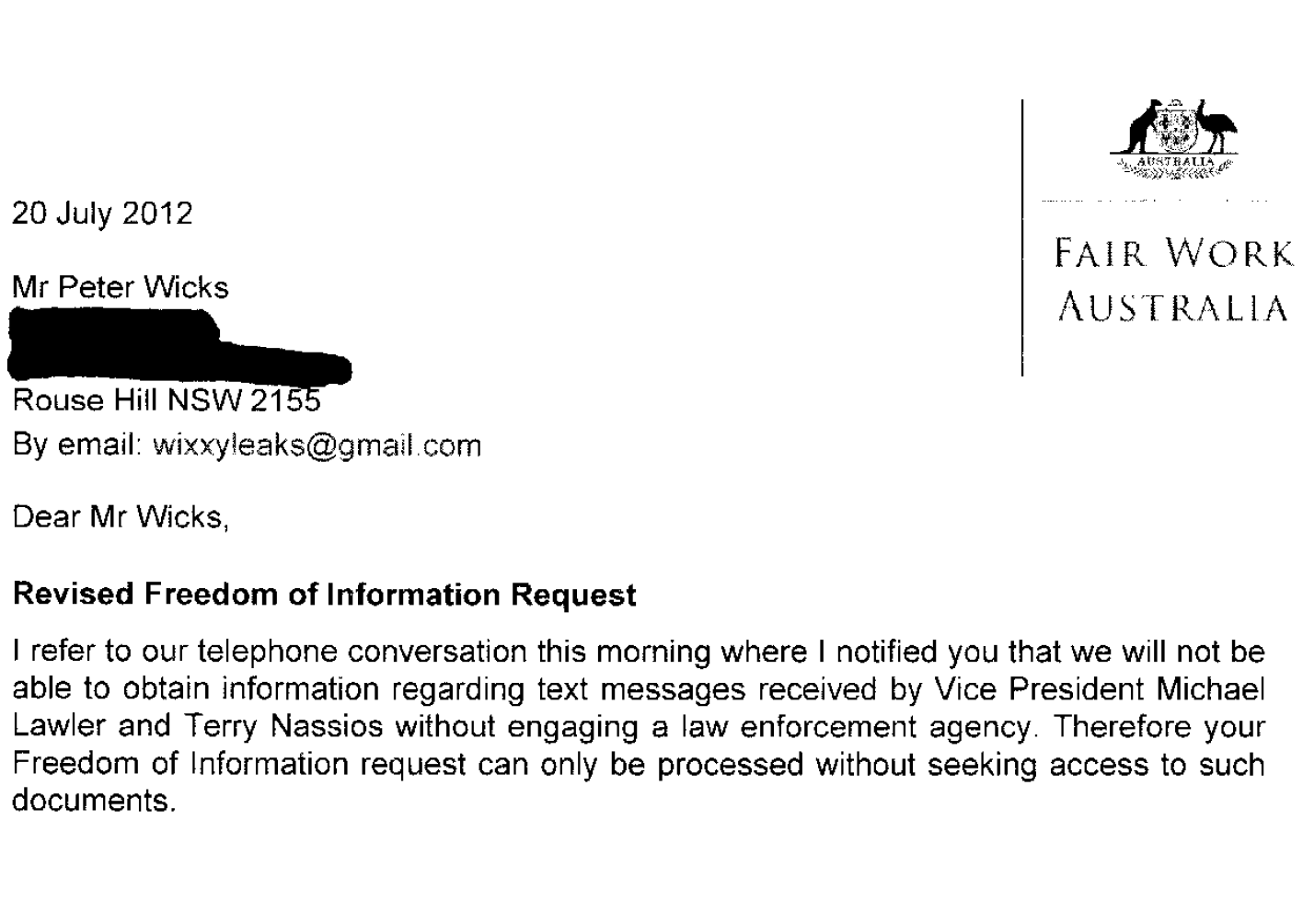
Eve Soliman
BRISBANE (JournLaw / Pacific Media Watch): Australian journalists face the possibility of extra delays in their freedom of information appeals with Australian federal budget cuts doing away with the Office of the Australian Information Commissioner (OAIC) by January 2015.
The cut is meant to save $10.2 million a year, but dissolving the OAIC will mean the duties that the agency carried out will have to be shifted into four other bodies.
The privacy functions that are carried out by the Privacy Commissioner will continue as an independent legislative position within the Human Rights Commission.
The external examination of Freedom of Information (FOI) will be adopted by the Administrative Affairs Tribunal.
The Commonwealth Ombudsman will take the responsibility of filing and treatment of FOI complaints.
The last function will be divided into the Attorney-General’s Department, whose responsibility will include the administering of “FOI guidelines, collecting statistics and providing explanatory material on the operation of the Freedom of Information Act 1982” (Office of the Information Commissioner disbanded as part of budget reforms, Ashurst Australia).
The budget cuts aimed at saving $10.2 million annually but will only save $3.3 million in direct financing this year and the cost of financing the continued duties, once carried out by the federal budget will be passed onto the four separate departments that it absorbed into.
The Attorney-General’s Office will be funding $500,000 this year and $900,000 annually in the following years, the Human Rights Commission will contribute $2.7 million in 2015 and around $5.5 million annually the following years and the Administrative Appeals Tribunal will pay $300,000 this year and half a million dollars annually in the following years.
Negative impact
The reasons behind the budget cut can only be speculated, but could have a negative impact on the freedom of information and ways that the functions can be met.
A major critique by the government, agencies and other commentators on the OAIC, is that it has been inefficient in delivering information and reviewing FOI applications.
But despite claims of the OAIC’s efficiency, or viewing the institution as unnecessary there is copious amounts of evidence on the accomplishments and progress of OAIC to counter the arguments.
The completion of cases per day has increased from .37 cases in the first year and a half of its establishment, to 4.7 cases per day, the completion and cessation of FOI requests and privacy complaints also increased substantially.
The OAIC was formed in 2010 as an independent bureau within the Attorney General’s Department that’s purpose involved several elements of information dispersal and management: privacy, FOI and policy.
Predating the formation of the OAIC, the Privacy Commissioner belonged to the Human Rights Commission. The OAIC has 76 staff.
The OAIC has accomplished many things within the spectrum of privacy, freedom of information and information policy.
The agency had conducted an audit of the information management policies belonging to 191 Australian government agencies.
OAIC also resolved a total of 1,191 appeal applications and requests for information and published the reasoning for 186 of those cases, handled 4521 phone enquiries and 1891 written enquiries involving freedom of information and closed 394 FOI complaints.
In 2011, the OAIC hosted a National Information Policy Conference, that was attended by hundreds of people and created and dispersed the Principles on open public sector information which the government utilises and relies on.
Eve Soliman is a JournLaw Press Freedom Intern at Griffith University.
Concerns about closure of FOI review office
Budget 2014: OAIC disbanded as privacy, FOI oversight redistributed
This work is licensed under a Creative Commons Attribution-NonCommercial 3.0 New Zealand Licence.




